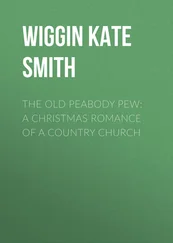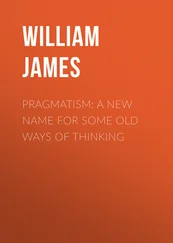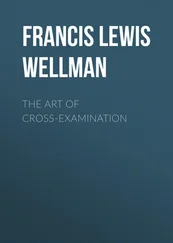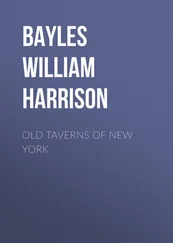William Andrews - Old Church Lore
Здесь есть возможность читать онлайн «William Andrews - Old Church Lore» — ознакомительный отрывок электронной книги совершенно бесплатно, а после прочтения отрывка купить полную версию. В некоторых случаях можно слушать аудио, скачать через торрент в формате fb2 и присутствует краткое содержание. Жанр: foreign_antique, foreign_prose, на английском языке. Описание произведения, (предисловие) а так же отзывы посетителей доступны на портале библиотеки ЛибКат.
- Название:Old Church Lore
- Автор:
- Жанр:
- Год:неизвестен
- ISBN:нет данных
- Рейтинг книги:3 / 5. Голосов: 1
-
Избранное:Добавить в избранное
- Отзывы:
-
Ваша оценка:
- 60
- 1
- 2
- 3
- 4
- 5
Old Church Lore: краткое содержание, описание и аннотация
Предлагаем к чтению аннотацию, описание, краткое содержание или предисловие (зависит от того, что написал сам автор книги «Old Church Lore»). Если вы не нашли необходимую информацию о книге — напишите в комментариях, мы постараемся отыскать её.
Old Church Lore — читать онлайн ознакомительный отрывок
Ниже представлен текст книги, разбитый по страницам. Система сохранения места последней прочитанной страницы, позволяет с удобством читать онлайн бесплатно книгу «Old Church Lore», без необходимости каждый раз заново искать на чём Вы остановились. Поставьте закладку, и сможете в любой момент перейти на страницу, на которой закончили чтение.
Интервал:
Закладка:
The right of sanctuary was granted to the church of St. John, Beverley, by Athelstan, and near the altar was placed a Fridstol, or chair of peace, denoting that here the refugee might find peace. According to Camden and Leland, the chair once bore a Latin inscription which has been translated thus: “This stone chair is called the Freed Stool, i. e. , the Chair of Peace, to which what criminal soever flies hath full protection.” There is not at the present time any trace of an inscription on it. We only know of two sanctuary chairs which are still preserved in England, namely, one at Beverley and the other at Hexham.
The extent of the Beverley sanctuary was a circle round the church having a radius of about a mile, with the church as a centre, marked by stone crosses erected on the four principal roads leading to the town. “If a malefactor,” says Oliver, in his “History of Beverley,” “flying for refuge was taken or apprehended within the crosses, the party that took or had hold of him there, did forfeit two hundreth; if he took him within the town, then he forfeited four hundreth; if within the walls of the churchyard, then six hundreth; if within the church, then twelve hundreth; if within the doors of the quire, then eighteen hundreth, besides penance, as in case of sacrilege; but if he presumed to take him out of the stone chair near the altar, called Fridstol, or from among the holy relics behind the altar, the offence was not redeemable with any sum, but was then become sine emendatione, boteles , and nothing but the utmost severity of the offended church was to be expected, by a dreadful excommunication, besides what secular power would impose for the presumptuous misdemeanor.” There is a foot-note in Oliver’s book, on the authority of Richard Prior, of Hagulstad, saying that “the hundreth contained eight pounds; so that the last penalty was most immense, nearly as much as the weregild for killing a crowned head in Wales; and, indeed, every act of violence committed against the right of sanctuary was esteemed a breach of the churches’ peace, a high crime, and a species of sacrilege.”
The particulars of the persons who took sanctuary from about the year 1478 to 1539, published by the Surtees Society, is drawn from a thin folio volume, preserved among the Harleian MSS. This important manuscript contains a copy of the oath taken by those who sought sanctuary at Beverley. The Bailiff of the Archbishop, by whom the oath was administered, had to enquire of the refugee: —
“What man he killed, and wher with, and both ther names, and than gar him lay his hand uppon the book, saying on this wyse —
Sir, take hede on your oth – Ye shalbe trew and feythfull to my Lord Archbisshop of York, Lord off this towne, to the Provest of the same, to the Chanons of this Chirch, and all other ministers therof.
Also, ye shall bere gude hert to the Baillie and xij governars of this town, to all burges and comyners of the same.
Also, ye shall bere no poynted wepon, dagger, knyfe, ne non other wapen ayenst the Kynge’s pece.
Also, ye shalbe redy at all your power, if ther be any debate or stryf, or order so than case of fyre within the towne, to help to surcess it.
Also, ye shalbe redy at the obite of Kyng Adelstan, at the dirige and the messe, at suche tyme as it is done, at the warnyng of the belman of the towne, and doe your dewte in ryngyng, and for to offer at the messe on the morne. So help you God and thies holy Evangelistes. And than gar hym kysse the book.”
The Bailiff’s fee on this occasion appears to have been two shillings and fourpence, that of the Clerk of the Court, for inscribing the name of the refugee in the register, fourpence.
As we have previously stated, the Beverley register, published by the Surtees Society, commences about the year 1478, and extends to 1539. A summary of the crimes and the trades, etc., of refugees is as follows: —
Crimes. – Indefinite, 35. Persons concerned, 35. No trade described, 10; Labourers, 3; Tylers, 2; Tailors, 2; Masons, 2; Dyers, 2; Yeomen, 2; Merchant, 1; Husbandman, 1; Smith, 1; Clerk, 1; Butcher, 1; Chapman, 1; Gentleman, 1; Draper, 1; Skinner, 1; Shoemaker, 1; Haberdasher, 1; Litster, 1. Murder and Homicide. – Crimes, 173. Persons implicated, 186. No trade or occupation described, 52; Tailors, 19; Husbandmen, 17; Yeomen, 16; Labourers, 14; Weavers and Websters, 11; Shoemakers, 8; Butchers, 6; Gentlemen, 6; Mercers, 3; Barbers, 3; Brewers, 3; Servants, 2; Esquires, 2; Surgeons, 2; Millers, 2; Mariners, 2; Smith, 1; Shearman, 1; Spinster, 1; Carpenter, 1; Painter, 1; Chapman, 1; Maltster, 1; Cartwright, 1; Gentlewoman, 1; Chandler, 1; Minstrell, 1; Cooper, 1; Literate, 1; Saddler, 1; Shepherd, 1; Carrier, 1; Tanner, 1; Cook, 1; Hatmaker, 1. Felony. – Crimes, 51. Persons implicated, 54. No trade described, 3; Labourers, 8; Tailors, 6; Husbandmen, 4; Butchers, 4; Glovers, 3; Goldsmiths, 3; Cutlers, 3; Tylers, 2; Plumbers, 2; Yeomen, 2; Merchant, 1; Smith, 1; Clerk, 1; Physician, 1; Spinster, 1; Grocer, 1; Gentleman, 1; Pinner, 1; Mariner, 1; Shoemaker, 1; Fishmonger, 1; Fuller, 1; Brickmaker, 1. Horse stealing, 1, a Labourer. Treason, 1, a Butcher. Receipt of stolen goods, 1, a Haberdasher. Coining. – Cases, 6; persons, 7. No trade described, 1; Yeomen, 2; Fleshers, 2; Tailor, 1; Weaver, 1. Debtors, 208. No trade described, 36; Butchers, 31; Labourers, 12; Merchants, 9; Husbandmen, 9; Gentlemen, 9; Mercers, 8; Tailors, 6; Weavers and Websters, 5; Dyers, 5; Yeomen, 5; Glovers, 4; Drapers, 4; Shearmen, 3; Chapmen, 3; Pewterers, 3; Smiths, 2; Grocers, 2; Fishers, 2; Bakers, 2; Chandlers, 2; Wheelwrights, 2; Coopers, 2; Pouchmakers, 2; Vintners, 2; Fishmongers, 2; Bowyers, 2; Tapper, 1; Alderman and Grocer of London, 1; Carpenter, 1; Wax Chandler, 1; Painter, 1; Goldsmith, 1; Clothier, 1; Waiter, 1; Maltster, 1; Surgeon, 1; Pinner, 1; Skinner, 1; Fustain Shearer, 1; Capper, 1; Mason, 1; Haberdasher, 1; Salter, 1; Carrier, 1; Tanner, 1; Woolman, 1; Purser, 1; Singingman, 1; Woodmonger, 1; Cook, 1; Wooldriver, 1; Hatmaker, 1; Bedmaker, 1; Barber, 1.
The weapons employed in cases of murder are seldom named in the Beverley records.
The right of sanctuary was, perhaps, a blessing in the time it existed. Hallam, in his “State of Europe in the Middle Ages,” says that right of sanctuary might as often be a shield of innocence as an impunity of crime. “We can hardly regret, on reflecting on the desolating violence which prevailed, that there should have been some green spots in the wilderness, where the feeble and the persecuted could find refuge. How must this right have enhanced the veneration for religious institutions! How gladly must the victims of internal warfare have turned their eyes from baronial castle, the dread and scourge of the neighbourhood, to those venerable walls, within which not even the clamour of arms could be heard to disturb the chaunt of holy men and the sacred service of the altar.”
The Romance of Trial
In past ages, trial by ordeal was customary in this country, and at the present time in several foreign lands, where education has not swept away superstitious beliefs, it is often used as a means of testing the guilt or innocence of accused persons. The origin of ordeal may be traced back to a remote period. In the Anglo-Saxon judicial systems it formed an important feature, and the first record of it in this country appears in the laws of King Ina, who reigned over Wessex from the year 688 to 727. The clergy figured prominently in the trials.
For three days prior to the time appointed for the trial, the accused passed through a course of severe discipline and austere diet. He declared on oath that he was innocent of the crime laid to his charge. Twenty-four of his friends and foes were brought together, and after a religious service, specially prepared for the occasion, had been performed, the ordeal was then tried. The ordeals were of various kinds, the nobles and other great personages being generally tried with the boiling water ordeal.
Читать дальшеИнтервал:
Закладка:
Похожие книги на «Old Church Lore»
Представляем Вашему вниманию похожие книги на «Old Church Lore» списком для выбора. Мы отобрали схожую по названию и смыслу литературу в надежде предоставить читателям больше вариантов отыскать новые, интересные, ещё непрочитанные произведения.
Обсуждение, отзывы о книге «Old Church Lore» и просто собственные мнения читателей. Оставьте ваши комментарии, напишите, что Вы думаете о произведении, его смысле или главных героях. Укажите что конкретно понравилось, а что нет, и почему Вы так считаете.












